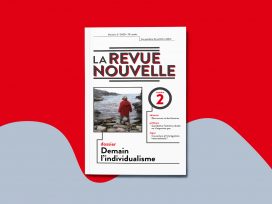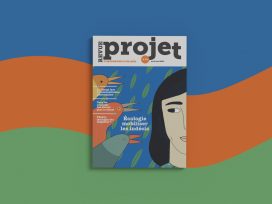The new issue of the Flemish journal ‘rekto:verso’ informs us about historical monsters, monsters in the movies, and monsters at the circus. But it also discusses monsters that aren’t always recognizable as such: the embodiments of monstrousness experienced in multiple ‘Others’.
 Featuring beautiful if disturbing artwork, the new issue of the Flemish journal rekto:verso informs us about historical monsters, monsters in the movies, and monsters at the circus. But it also discusses monsters that aren’t always recognizable as such: the contemporary embodiments of monstrousness experienced in multiple ‘Others’.
Featuring beautiful if disturbing artwork, the new issue of the Flemish journal rekto:verso informs us about historical monsters, monsters in the movies, and monsters at the circus. But it also discusses monsters that aren’t always recognizable as such: the contemporary embodiments of monstrousness experienced in multiple ‘Others’.
Myth: Ambitious and intelligent women from Hilary Clinton to Greta Thunberg, who ‘dare to transcend the norms and values of patriarchal societies’, are often perceived as monsters. Zeynep Kubat connects their fate to the myth of Medusa. We think of her as ugly and aggressive, but she tells a story about rape culture and how to claim one’s voice. If Medusa is a feminist symbol, then the monstrous might harbour positive energies in the battle for rights and emancipation.
Colonialism: Sibo Kanobana explores the figure of Black Pete in the Dutch-Belgian tradition. There are many similar figures in cultures worldwide, but the Dutch-Belgian ‘monster’ is unusual in being a product of colonial history. Slowly but surely, however, this is changing. ‘Although Black Pete and his significance as an object of hilarity will not disappear, his colonial and imperialistic connotations will’. Monstrous and magical characters are loved and wanted and perform an important cultural function.
AI: Gaea Schoeters sees artificial intelligence as a present-day Frankenstein: ‘Once Pandora’s box is opened, we will not be able to put the monster back.’ AI is also monstrous because it is utterly incomprehensible, even for those who conceived it. However, the real question is less who understands it, but rather who owns it — because whoever does, also owns the world.
More articles from rekto:verso in Eurozine; rekto:verso’s website
This article is part of the 6/2020 Eurozine review. Click here to subscribe to our weekly newsletter, to get updates on reviews and our latest publishing
Published 20 April 2020
Original in English
Contributed by rekto:verso © Eurozine
PDF/PRINTNewsletter
Subscribe to know what’s worth thinking about.
Related Articles

The technological link between the rifle and the film camera, the medial links between the Gulf War and Star Wars, the colonial history of bombs – piecing together historical and contemporary fragments reveals an image of Kurdistan as a testing ground for military technology unleashed without responsibility for its consequences.

While China moves into its fifth decade of extracting rare earths and raw materials, Europe remains stuck between nationalistic industry priorities and democratic principles.









